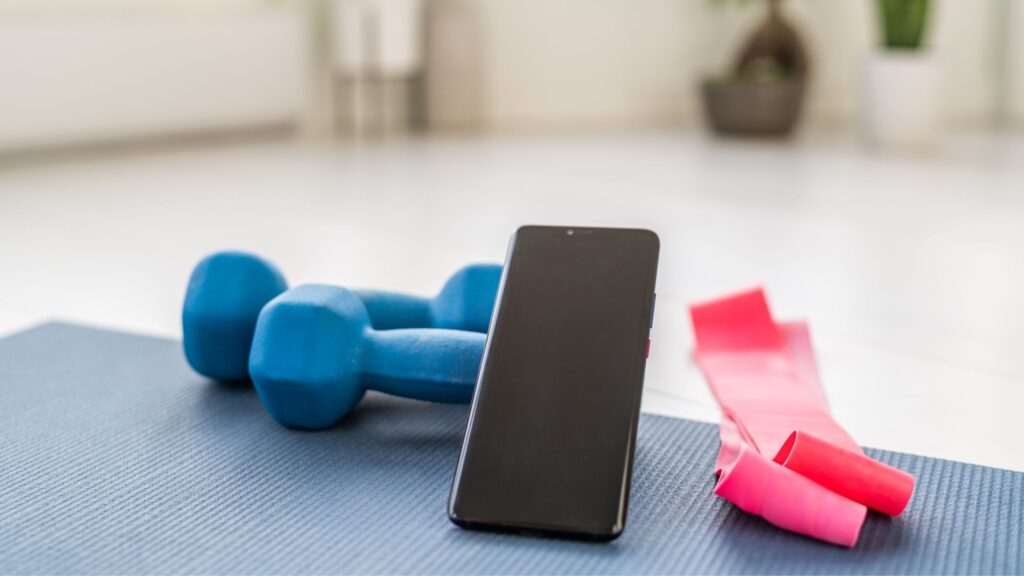In recent years, the search for a healthier life has gained momentum, driven by technological advances that facilitate access to physical activity monitoring tools.
Fitness apps, which are increasingly popular, have emerged as important allies in promoting an active lifestyle. These digital resources not only record sports activities, but also motivate users to abandon a sedentary lifestyle in an accessible and efficient way.
These apps, available for smartphones, tablets and smartwatches, have been designed to make it easy to log a wide variety of workouts, from running and walking to weight training and yoga sessions.
With the help of sensors built into the devices, users can track data such as distance traveled, calories burned and heart rate in real time. This provides more precise control over physical performance, encouraging continued activity.

What else do exercise and health apps offer?
In addition to tracking, many of these apps offer personalized workout plans that are tailored to individual needs and goals. This allows users to follow specific programs, whether it’s for weight loss, muscle gain, or overall health maintenance.
This personalization is one of the factors that contributes to the popularity of these tools, as they offer structured guidance that is often comparable to the guidance of a personal trainer.
One of the most innovative aspects of these apps is the incorporation of gamification. This concept, which uses typical game elements such as scores, rewards and challenges, has proven effective in keeping users engaged and motivated.
For example, many apps create competitions between friends or offer rewards for goals achieved, turning exercise into a fun and competitive experience. This approach not only makes workouts more enjoyable, but also encourages users to set and surpass their own limits, which is crucial to maintaining a regular exercise routine.
The role of a supportive community building
The benefits of these apps aren’t limited to individual motivation. They also play an important role in creating a supportive community. By allowing users to share their achievements on social media or participate in group challenges, these apps foster social interaction, which is a key factor in maintaining and committing to workout programs.
This interaction not only increases motivation, but also creates a sense of belonging, which is essential for users to feel part of something bigger.
The accessibility of these tools is another highlight. In the past, effective training tracking required significant investments in expensive equipment or personal trainers. Today, with a smartphone and a fitness app, anyone can access high-quality exercise programs, often for free or at a reduced cost.
However, it is crucial that users are careful to perform the exercises correctly to avoid injuries, as the lack of physical supervision can lead to inappropriate practices.
See also:
- Extra income for the second half of the year: best apps to use
- App to listen to music offline: 10 options that are worth it
- Free, but for a limited time! Best apps for Android and iOS
New cell phone help for fitness apps
The technology behind these devices has also evolved significantly, making the monitoring of physical activities increasingly accurate. Smartwatch models such as the S24 stand out for their ability to measure speed and mileage with high precision.
Additionally, some devices offer advanced features such as built-in GPS, real-time heart rate monitoring, and even the ability to record sleep quality. These features contribute to more complete and detailed monitoring of users’ health, encouraging regular physical activity.
In addition to the features mentioned, it is important to highlight the role of these applications in educating and raising awareness among users about the importance of an active lifestyle.
Many of them provide health tips, nutrition advice and even psychological support to help users stay motivated. This reflects a growing trend towards a holistic approach to health, where physical, mental and emotional well-being are seen as interdependent.
In short, fitness apps have revolutionized the way people approach exercise. By combining accurate tracking, personalization, gamification, and social interaction, they offer a comprehensive solution for those looking to improve their health and quality of life.
With the continuous advancement of technology, it is likely that these tools will become even more sophisticated and integrated, consolidating themselves as an indispensable part of the routine of those seeking a healthier life.



